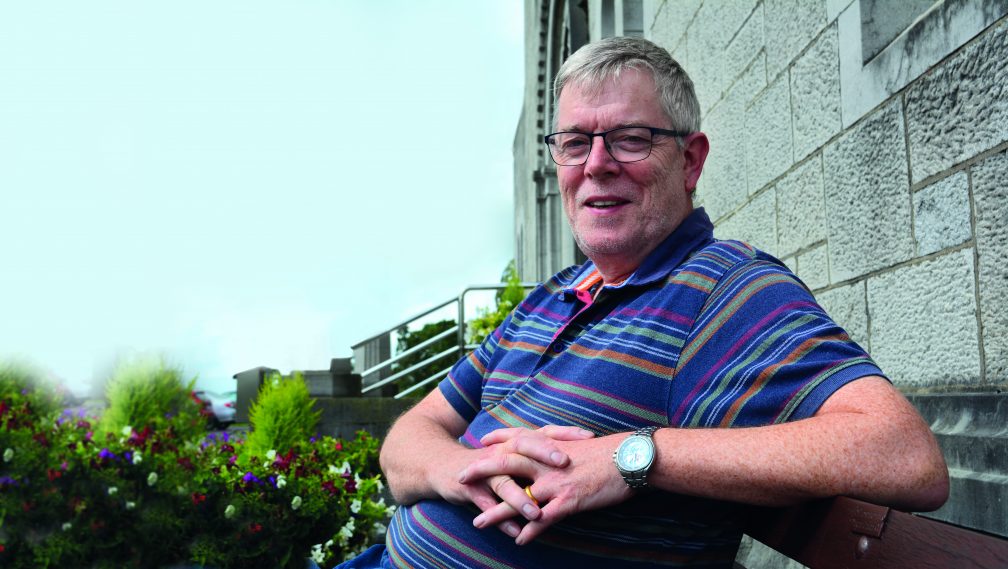It is no exaggeration to say that nearly every family has at least one member – often more – who is addicted to heroin. This highly addictive substance is both easily accessible and incredibly cheap, making it a widespread crisis. The impact of addiction is devastating, tearing families apart and claiming countless lives.
At the Columban-run Rebirth Rehabilitation Centre, we see the tragic consequences of this epidemic every day. Recently, we welcomed two brothers into the centre, accompanied by their grieving mother. She tearfully told us that two of her other sons had already lost their lives to heroin overdoses. These heart-breaking stories are not uncommon. The work we do at the centre is not just about rehabilitation – it is literally about saving lives.
For many of our clients, finding stable employment after completing their treatment is a major challenge. Without a reliable source of income, many relapse into old habits or return to environments where drug use is rampant. A significant number of them head back to the jade and gold mines in northern Kachin State, the epicentre of Myanmar’s drug trade. These mines operate in brutal conditions where drug use is deeply ingrained. Heroin is the substance of choice, but in some places, employers distribute methamphetamines to workers to keep them awake for long shifts. For someone fresh out of rehab, remaining sober in such an environment is an enormous struggle.

Recognising this challenge, we felt a strong call to establish a Vocational Training Programme to help our clients rebuild their lives. The idea was simple: if we could equip them with skills and meaningful work opportunities, we could offer them a real alternative to returning to the mines and falling back into addiction.
Our vocational training initiative started small, focusing on basic but valuable skills that could lead to self-sufficiency. We began teaching our after-care clients and volunteers various trades, including carpentry, haircutting, flower arranging, soap making, and rosary bead production. These skills offer not only practical benefits but also a sense of purpose and dignity. Whenever someone expresses interest in a particular trade, we strive to connect them with an apprenticeship that can provide further training and hands-on experience.
Today, our initiative has grown significantly. We now operate two carpentry workshops, which provide stable employment for six individuals while also serving as training centres for our after-care clients and volunteers. These workshops have become places of learning, mentorship, and hope, where people can rediscover their abilities and find a renewed sense of purpose.
In February 2025, we took another step forward by opening a barber shop. This project employs three people while also serving as a training ground for others who wish to learn the trade. We were fortunate to receive some financial support from USAID, but much of the funding came from readers of our Far East magazine who generously donated to support our work at the centre. This outpouring of kindness has allowed us to continue expanding our efforts and reaching more individuals in need.

Over the past two years, we have successfully placed ten individuals into apprenticeships. While this number may seem small in the face of such a vast crisis, the impact is profound. Each person who finds stability and purpose through vocational training is one less person lost to addiction. They, in turn, influence their families and communities, creating ripples of change that extend far beyond the walls of our rehabilitation centre.
The challenges we face in Kachin State are immense. Myanmar continues to struggle under the weight of civil conflict, further complicating our efforts to support those in recovery. At times, the sheer scale of the problem can feel overwhelming. However, amid this turmoil, we have seen countless signs of hope. God has guided us on this journey, providing us with the strength, resources, and support to continue our mission.
There is no greater blessing than witnessing the transformation of someone freed from the shackles of addiction. The joy of seeing a former addict find stability, purpose, and a renewed sense of dignity is indescribable. These moments remind us that recovery is possible – even during war and uncertainty.
To all who have supported our work through prayers, donations, and encouragement, we extend our heartfelt gratitude. Your generosity is making a real and lasting difference. Our clients, after-care volunteers, and staff are deeply grateful for the lifeline you provide. As we continue this journey, we remain committed to expanding our vocational training efforts and empowering more people to build new, addiction-free lives.
Recovery happens one day at a time, one person at a time. And with your continued support, we can help even more individuals find their path to healing, dignity, and hope.



